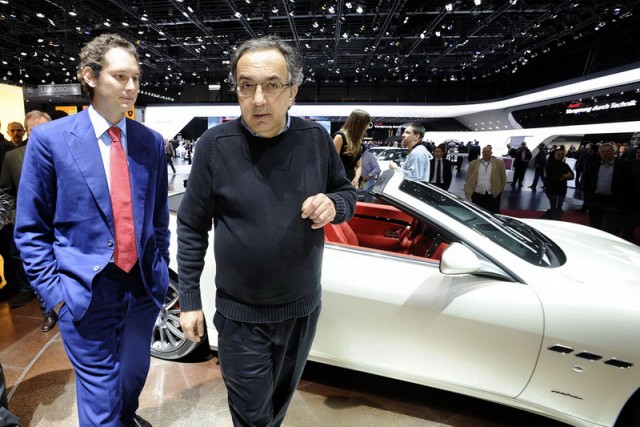It looks as if we will have to wait until April 2014 for full confirmation of Fiat's big European revival plans, but some details have already begun to leak out from within the mighty Turin corporate edifice. Chief amongst those details are that Fiat boss Sergio Marchionne is planning to invest €9 billion in new models and rebuilding dealer networks. Twenty new cars will be introduced, and most of those will be built in Italy. While labour rates in Italy are, as they are in so many western European markets, unfashionably high for car makers, the Big Idea behind the Fiat revival is to make high-quality, premium-feel models with long and lucrative options lists and a big 'Made in Italy' tag. If buyers will pay extra for an Ermenigildo Zenga suit, a pair of Ferragamo shoes or an Aurora pen, goes the theory, then a Maserati, an Alfa Romeo or even a high-end Fiat 500 might well be able to sell on similar appeal.
The Fiat Punto, despite once being a European best-seller, will apparently be dropped. It will be replaced by a five-door version of the next generation 500, which will continue to be built at Fiat's factory in Poland, where workers' wages are around one quarter of their Italian equivalents'. Meanwhile the once-mighty Mirafiori plant in Turin is due to switch from mass-market to upmarket. In the 1970s, the factory employed as many as 50,000 people and turned out 600,000 cars a year. Now, that figure is around 5,000 employees and as few as 20,000 cars annually. Mirafiori's future will hopefully be secured by the arrival of the premium Maserati Levante. A posh SUV, with Jeep Grand Cherokee underpinnings, the Levante could help to cement Maserati's recent success. So far this year, Maserati has sold 23,000 cars - four times what it shifted in 2012.
The Fiat brand itself will be bifurcated into two product streams: cool cars with lots of expensive options based around the trendy 500 (including from next year a 500X SUV, which will platform-share with a new small Jeep) and a more practical, affordable range based around the Panda.
While Fiat's market share has tumbled to an astonishing low from its once untouchable dominance of the European market, it has actually weathered the storms of recession better than mast European car makers, losing 'only' €2 billion since 2011, with losses of around €304 million this year. That puts it in a stronger position than PSA Peugeot Citroen or Opel, but Fiat boss Sergio Marchionne will be impatient to get the Italian giant back on its financial feet as he lines up a complete merger of Fiat with its American partners in Chrysler.
A resurgence for Fiat is also being seen as a political necessity by the Italian government. Just as Fiat's factories helped the nation recover from the ruins of the Second World War, it's hoped that a resurgence now could help stabilise and rebuild Italy's shattered economy. It will all depend on how many European buyers Fiat can convince to part with their cash for high-end, high profit, made-in-Italy vehicles. Analysts are already predicting that Marchionne's gamble has to pay off, and pay off big time, or it could mean the end, once and for all, of mass-market car making in Italy and that could land a fatal blow to hopes for an economic recovery there. Presumably, the Italian government will not be shy in providing tax breaks for Fiat's investment, and potentially even incentives for buying Italian made cars.
Anything else?
All of this comes at an especially delicate time for Fiat's relationship with Chrysler. The once-bankrupt American car maker (and its Jeep and Dodge brands) has effectively been bankrolling the entire Fiat empire for the past couple of years, with strong and profitable sales in the US. Marchionne wants to combine the two companies into one giant global car maker. Currently, Fiat has a majority shareholding in Chrysler, but the balance is held by the United Auto Workers Healthcare Trust, a trade union. UAW wants more for its share than Marchionne is prepared to pay, especially as a full merger would give Fiat direct access to Chrysler's cash reserves, something that it's currently prevented from tapping into by legislation. A full merger could pave the way to make Fiat's European plans either a success, or at least provide a back-stop of funding if they falter.

